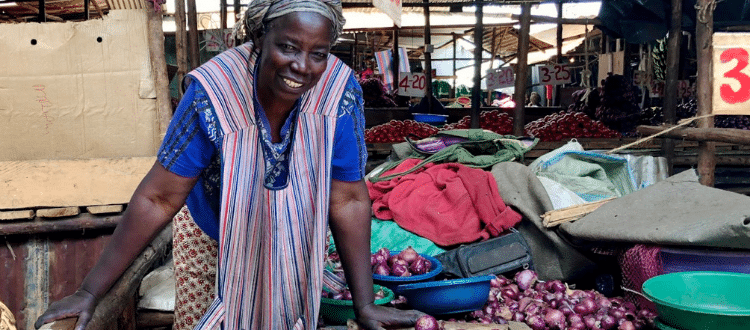“When you lift up women, you lift up humanity.” — Melinda Gates
March 8th is International Women’s Day (IWD), a global celebration of the social, economic, cultural and political achievements of women. This holiday has occurred for over a century, with its first gathering in 1911 supported by over one million people. Today, IWD is observed around the globe.
At Microfinancing Partners in Africa, we recognize that IWD is the perfect time to highlight women’s opportunities and achievements through our microfinance programs and projects. As you may know, each of our projects are coordinated through grassroots microfinancing organizations that offer training, support, and a reliable method of saving, borrowing, and growing a business. Many of these projects are specifically created by and for African women, who serve as the backbone of their households and communities. Through strategic steps with each microfinance project, individuals and communities come together to develop and advance business opportunities centered around microfinancing, to help lift themselves out of extreme poverty.
Microfinancing looks different for each of our projects – while some are classic savings and revolving loan type programs, some are animal-based with the loan structured around the repayment of the “living loan,” while other programs are built around a community of individuals working together to create products for sale. At the center of each of our projects is one core element: the opportunity for a hand up from poverty to possibility. To learn more in the spirit of International Women’s Day, read below how we’re helping women in Africa lift themselves up out of poverty with dignity and respect…
 After working to save, women in Kenya are able to receive a loan to begin a small business that will provide a sustainable income for not only themselves, but their family too. For Margaret, selling shoes at the local market has been the transformation that helped send her children to college.
After working to save, women in Kenya are able to receive a loan to begin a small business that will provide a sustainable income for not only themselves, but their family too. For Margaret, selling shoes at the local market has been the transformation that helped send her children to college.
 For women in Uganda who receive a living loan of a cow, their life is forever impacted. Each qualified family receives a pregnant cow, which gives birth and produces 18-24 liters of milk each day – enough for the family’s needs and extra to sell. This income is used to improve their diets, send children to school, and make improvements to their home and farm.
For women in Uganda who receive a living loan of a cow, their life is forever impacted. Each qualified family receives a pregnant cow, which gives birth and produces 18-24 liters of milk each day – enough for the family’s needs and extra to sell. This income is used to improve their diets, send children to school, and make improvements to their home and farm.
 Together, women in Tanzania are working to access resources to operate a variety of agricultural projects. One group employs women to plant, weed, and harvest soybeans to manufacture and sell soy milk and soy flour. Another group operates a greenhouse, using the proceeds from vegetable sales to support the group.
Together, women in Tanzania are working to access resources to operate a variety of agricultural projects. One group employs women to plant, weed, and harvest soybeans to manufacture and sell soy milk and soy flour. Another group operates a greenhouse, using the proceeds from vegetable sales to support the group.
 Post-fistula women in Uganda are receiving training in raising and selling pigs, recruiting two neighbors to help them build a zero-grazing shed. Each post-fistula woman receives a high-quality piglet, six months of feed, and vaccinations. As litters are produced, she can sell piglets at market as an income project.
Post-fistula women in Uganda are receiving training in raising and selling pigs, recruiting two neighbors to help them build a zero-grazing shed. Each post-fistula woman receives a high-quality piglet, six months of feed, and vaccinations. As litters are produced, she can sell piglets at market as an income project.

